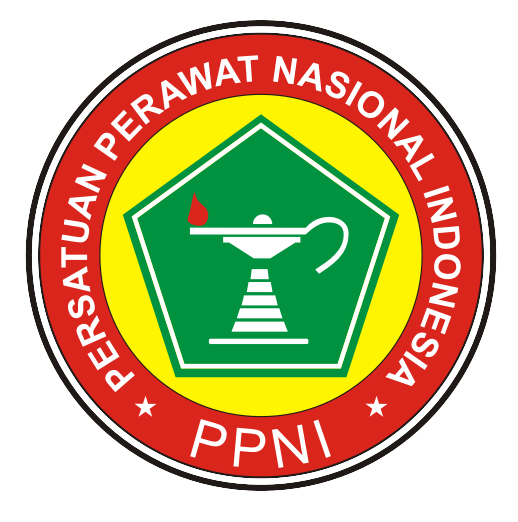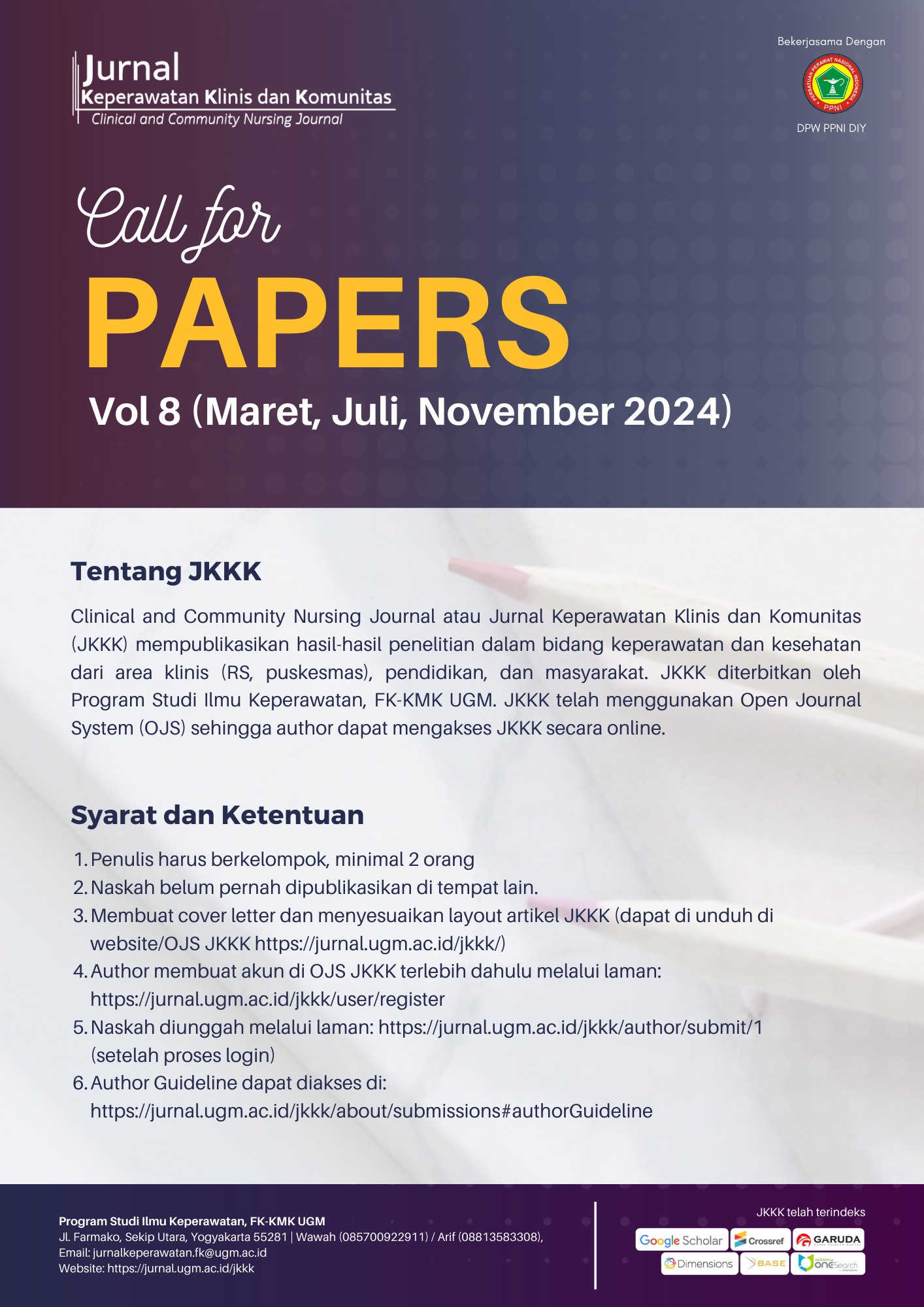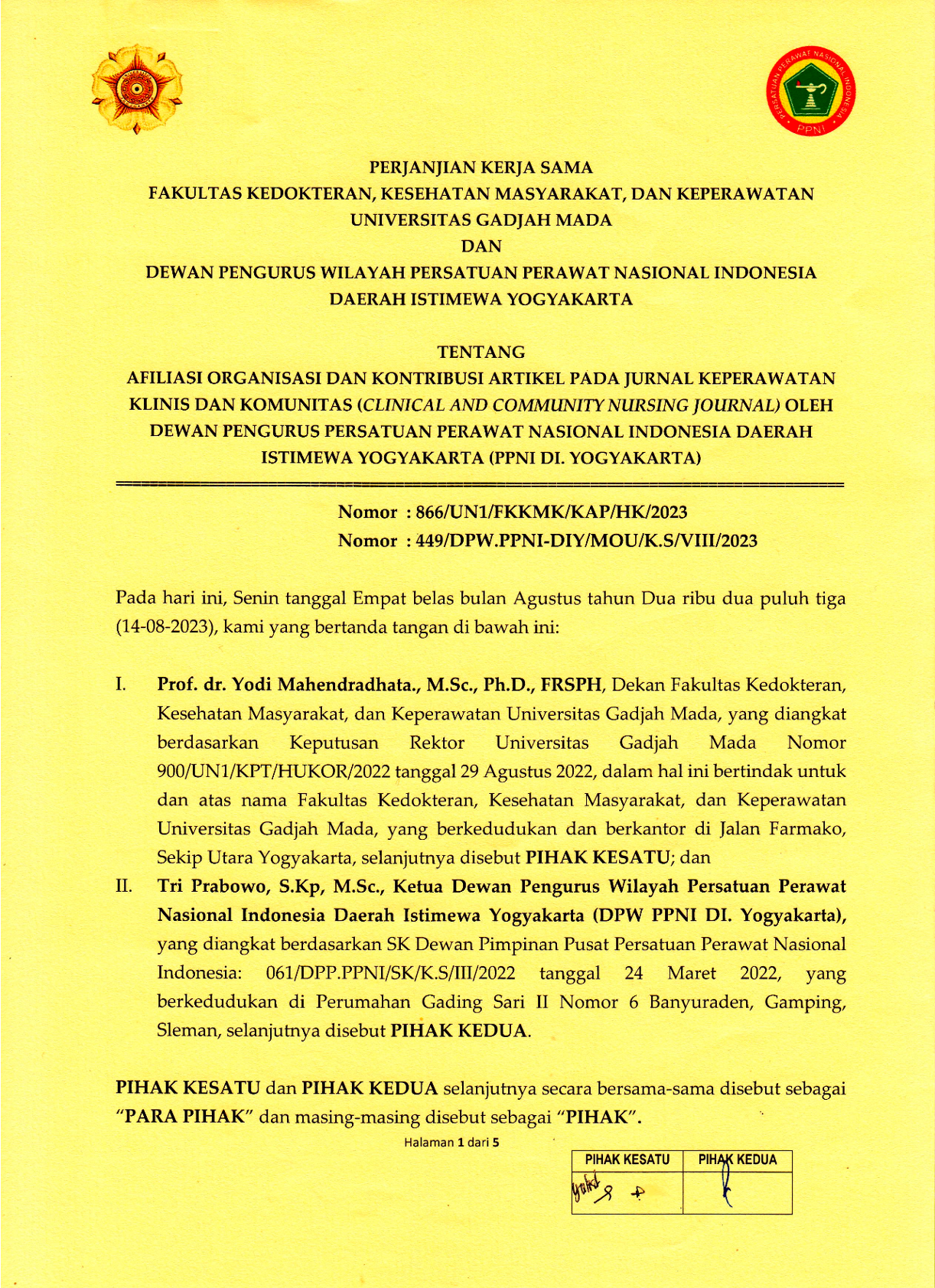Asupan Tinggi Garam Sebagai Perilaku Berisiko Terhadap Penyakit Kardiovaskular: Literature Review
Sitti Ramdasari Aksan(1*), Siti Naimah(2), Santalia Banne Tondok(3), Eza Kemal Firdaus(4), Haryani Haryani(5)
(1) Program Studi Magister Keperawatan, Fakultas Kedokteran, Kesehatan Masyarakat, dan Keperawatan, Universitas Gadjah Mada, Yogyakarta
(2) Program Studi Magister Keperawatan, Fakultas Kedokteran, Kesehatan Masyarakat, dan Keperawatan, Universitas Gadjah Mada, Yogyakarta
(3) Program Studi Magister Keperawatan, Fakultas Kedokteran, Kesehatan Masyarakat, dan Keperawatan, Universitas Gadjah Mada, Yogyakarta
(4) Program Studi Magister Keperawatan, Fakultas Kedokteran, Kesehatan Masyarakat, dan Keperawatan, Universitas Gadjah Mada, Yogyakarta
(5) Departemen Keperawatan Medikal Bedah, Fakultas Kedokteran, Kesehatan Masyarakat, dan Keperawatan, Universitas Gadjah Mada, Yogyakarta
(*) Corresponding Author
Abstract
Background: Globally in 2010, 1,7 million annual deaths due to cardiovascular have been associated with excess salt / sodium intake. High salt intake (more than 5 g per day) contributes to increased blood pressure and increases the risk of heart disease and stroke.
Objective: The purpose of this review literature is to explore the association of risk behavior factors for sodium intake with the incidence of cardiovascular disease.
Method: Electronic search was conducted using the keyword “(heart disease OR cardiovascular disease) (salt OR sodium) on 4 online databases: Science Direct, PubMed, SAGE Journal, and Clinical Key. The inclusion criteria in this study were articles published between 2009 and 2018, English publications, available and accessible to the full text, an original research with quantitative research design. Synthesis analysis of articles included using narrative analysis.
Result: This literatur review showed that from the 5 articles included there was a positive relationship between sodium intake and risk of cardiovascular events such as hypertension and coronary heart disease.
Conclusion: Sodium intake is considered relate to the risk of cardiovascular disease.
Latar belakang: penyakit kardiovaskular, yang memiliki keterkaitan dengan kelebihan konsumsi garam/natrium, bertanggung jawab atas 1,7 juta kematian global pada tahun 2010. Konsumsi garam berlebih (>5g/hari) diketahui meningkatkan tekanan darah dan risiko penyakit jantung serta stroke.
Tujuan: Tujuan literature review ini mengeksplorasi hubungan faktor risiko perilaku asupan sodium dengan kejadian penyakit kardiovaskular.
Metode: Penelusuran dilakukan dengan menggunakan kata kunci “(heart disease OR cardiovascular disease) AND (salt OR sodium). Pelusuran dilakukan pada 4 database online yaitu: ScienceDirect, PubMed, SAGE Journal, dan Clinical Key. Kriteria inklusi dalam studi ini adalah artikel yang dipublikasi dalam rentang 2009-2018, publikasi dalam Bahasa Inggris, tersedia dan dapat diakses keseluruhan artikel, merupakan original research dengan desain penelitian kuantitatif. Analisis sintesis artikel yang diinklusikan menggunakan naratif analisis.
Hasil: Ditemukan dari 5 artikel yang di-review terdapat hubungan yang positif antara asupan natrium dengan risiko kejadian penyakit kardiovaskuler seperti hipertensi dan penyakit jantung koroner.
Kesimpulan: Intake sodium berhubungan dengan risiko terjadinya penyakit kardiovaskular.
Keywords
Full Text:
PDFReferences
- World Health Organization. Global status report on noncommunicable diseases [homepage on the internet]. c.2014. [update 2021; cited 2018]. Available from: https://apps.who.int/iris/handle/10665/148114Health of Washington State. Coronary Heart Disease. Washington: Washington Stase Department of Health; 2016.
- He FJ, Burnier M, Macgregor GA. Nutrition in cardiovascular disease : salt in hypertension and heart failure. Eur Heart J. 2011;32(24):3073-80.
- Russell CL. An overview of the integrative research review. Prog Transplant. 2005;15(1):8-13.
- Critical Appraisal Skills Programme. CASP Cohort Study Checklist [homepage on the internet]. c.2018. [update 2018; cited 2018]. Available from: https://casp-uk.net/images/checklist/documents/CASP-Cohort-Study-Checklist/CASP-Cohort-Study-Checklist_2018.pdf
- Ikehara S, Iso H, Date C, Kikuchi S, Watanabe Y, Inaba Y, et al. Salt preference and mortality from stroke and coronary heart disease for Japanese men and women: The JACC study. Prev Med (Baltim). 2012;54(1):32–7.
- Park J, Kwock CK. Sodium intake and prevalence of hypertension, coronary heart disease, and stroke in Korean adults. J Ethn Foods. 2015;2(3):92–6.
- Bibbins-Domingo K, Chertow GM, Coxson PG, Moran A, Lightwood JM, Pletcher MJ, Goldman L. Projected effect of dietary salt reductions on future cardiovascular disease. N Engl J Med. 2010;362(7):590-9.
- Doukky R, Avery E, Mangla A, Collado FM, Ibrahim Z, Poulin MF, et al. Impact of Dietary Sodium Restriction on Heart Failure Outcomes Rami. JACC Hear Fail. 2017;4(1):24–35.
- Lelli D, Antonelli-Incalzi R, Bandinelli S, Ferrucci L, Pedone C. Association Between Sodium Excretion and Cardiovascular Disease and Mortality in the Elderly: A Cohort Study. J Am Med Dir Association. 2018;19(3):229–34.
Article Metrics
Refbacks
- There are currently no refbacks.
Copyright (c) 2020 Sitti Ramdasari Aksan, Siti Na’imah, Santalia Banne Tondok, Eza Kemal Firdaus, Haryani

Jurnal Keperawatan Klinis dan Komunitas (Clinical and Community Nursing Journal)
collaborates with DPW PPNI DIY
![]()
Jurnal Keperawatan Klinis dan Komunitas (Clinical and Community Nursing Journal) is licensed under a Creative Commons Attribution-ShareAlike 4.0 International License.




